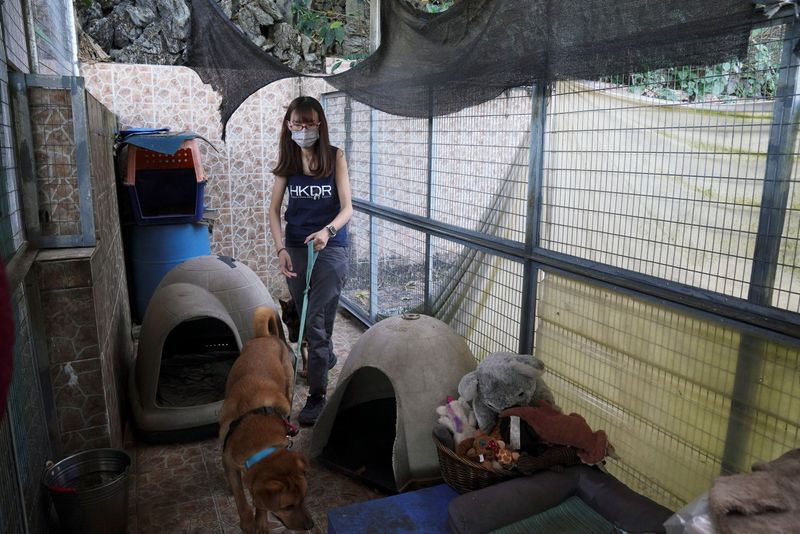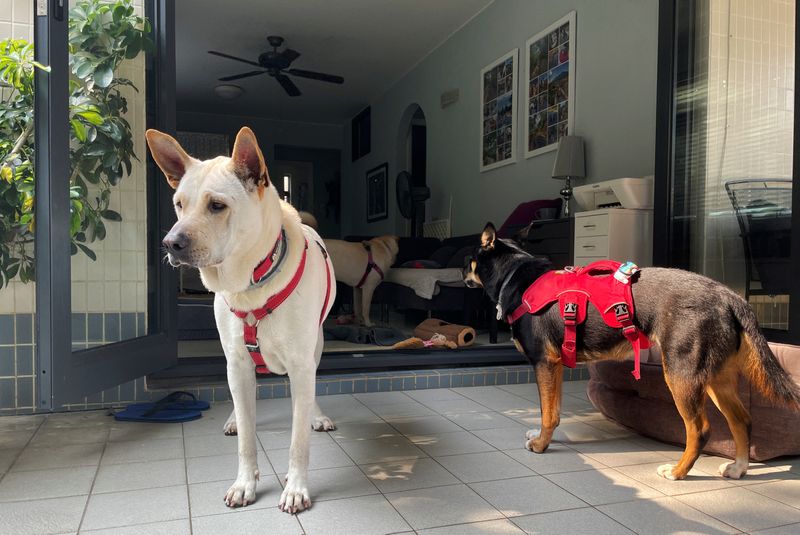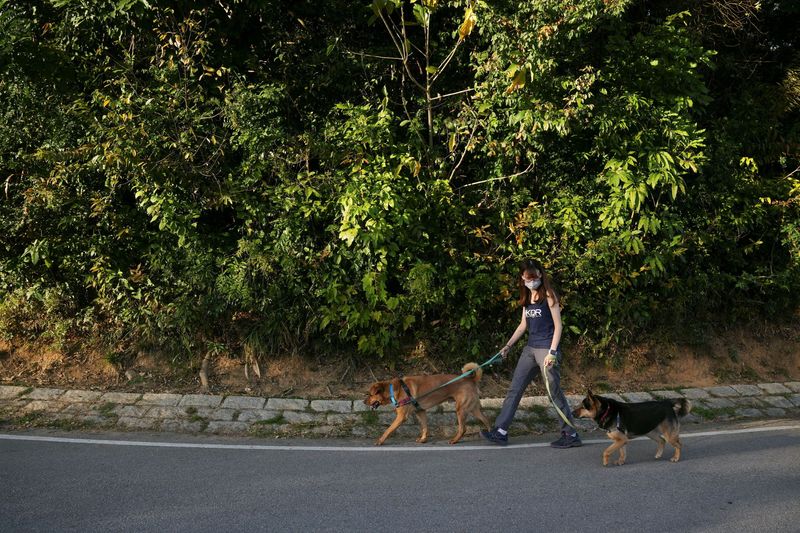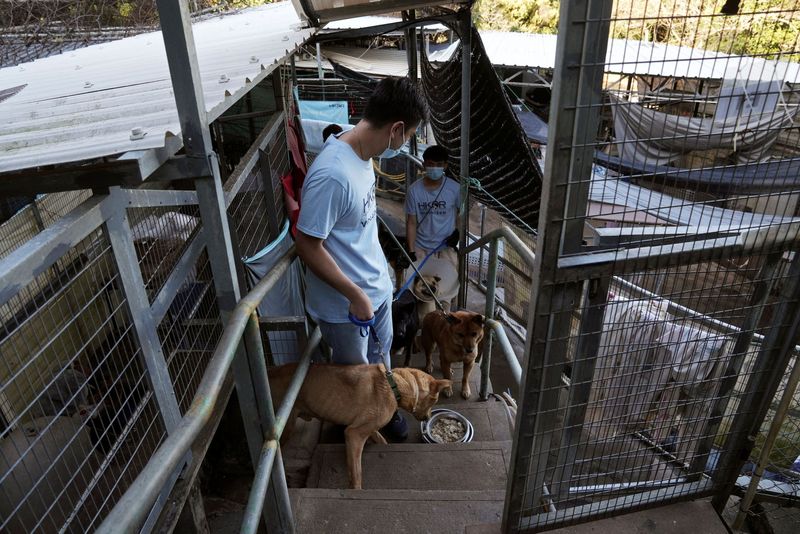HONG KONG (Reuters) – At Hong Kong Dog Rescue, Eva Sit kneels and calls over the shelter’s most recent residents, “friendly and goofy” Cassius and “shy” Roxy, two mixed-breed dogs left behind by their emigrating owner.
Recent weeks have been hectic for Sit and her colleagues, with government data showing more than 100,000 people have left the global financial hub this year. While most of the world is learning to live with COVID-19, Hong Kong residents have been increasingly frustrated with the city’s zero tolerance policy.
As airlines have cut the number of flights to and from Hong Kong because of its tough quarantine requirements, those who want to fly with their pets face fewer options, longer waiting lists and costs of up to tens of thousands of dollars.
Many choose to abandon their pets instead, overwhelming dog shelters, which are running at full capacity.
“We have seen an increase in the number of dog owners abandoning their dogs because they are moving out,” Sit said. “With COVID, it’s harder than before to travel with your pet.”
Cassius and Roxy were brought to the shelter on March 3 by a domestic helper whose employers flew home to Britain a while back and later decided not to return to Hong Kong.
“When the helper came to drop them off … she cried really hard, because obviously she loved them a lot,” Sit said. “She had taken care of them since they were puppies. And it’s not her responsibility, but her employer’s responsibility.”
There are no official figures on how many pets are being abandoned.
The number of government-issued animal health certificates, a document needed for pets to travel but not always given out for that reason, surged to almost 9,000 in 2021 from about 3,700 in 2020. About 1,500 such certificates have already been issued in the first two months of this year, the Agriculture, Fisheries and Conservation Department said.
The department did not comment on what may have caused the spike.
Pet Export Vet, a pet travel agency, said it received three to four times more inquiries in the past two to three months and has temporarily stopped accepting bookings. Ferndale Kennels and Cattery, another such agency, is still taking bookings but says costs are “sky-high” and travel arrangements increasingly complex due to unstable flight schedules.
Hong Kong has a net outflow of around 40,000 people so far in March, compared with more than 71,000 in February, the most in a month since the beginning of the pandemic, government data show. It is not known how many intend to return.
Sit said Hong Kong Dog Rescue takes in 10 abandoned dogs a month on average, compared with five before COVID-19, and it is running out of space now as fewer people want to adopt.
“Every charity has been pretty much overloaded,” said Kirsten Mitchell, founder of Kirsten’s Zoo, another rescue centre. “People surrender their goldfish, their turtles, not just cat and dogs.”
Claire McLennan, 48, an Australian who moved back home in December for family reasons, has been trying to fly her mongrel Remi from Hong Kong, where she is stuck in a pet boarding house.
“She was meant to fly in January, and then she was meant to fly in February, and then she was meant to fly in March, and now we are waiting to hear if Qantas is flying pets in April,” McLennan said.
“She’s a member of our family. It’s very sad. It’s hard for the kids.”
(Reporting by Jessie Pang and Sara Cheng; Additional reporting by Aleksander Solum and Rosanna Philpott; Writing by Marius Zaharia; Editing by Tom Hogue)
























